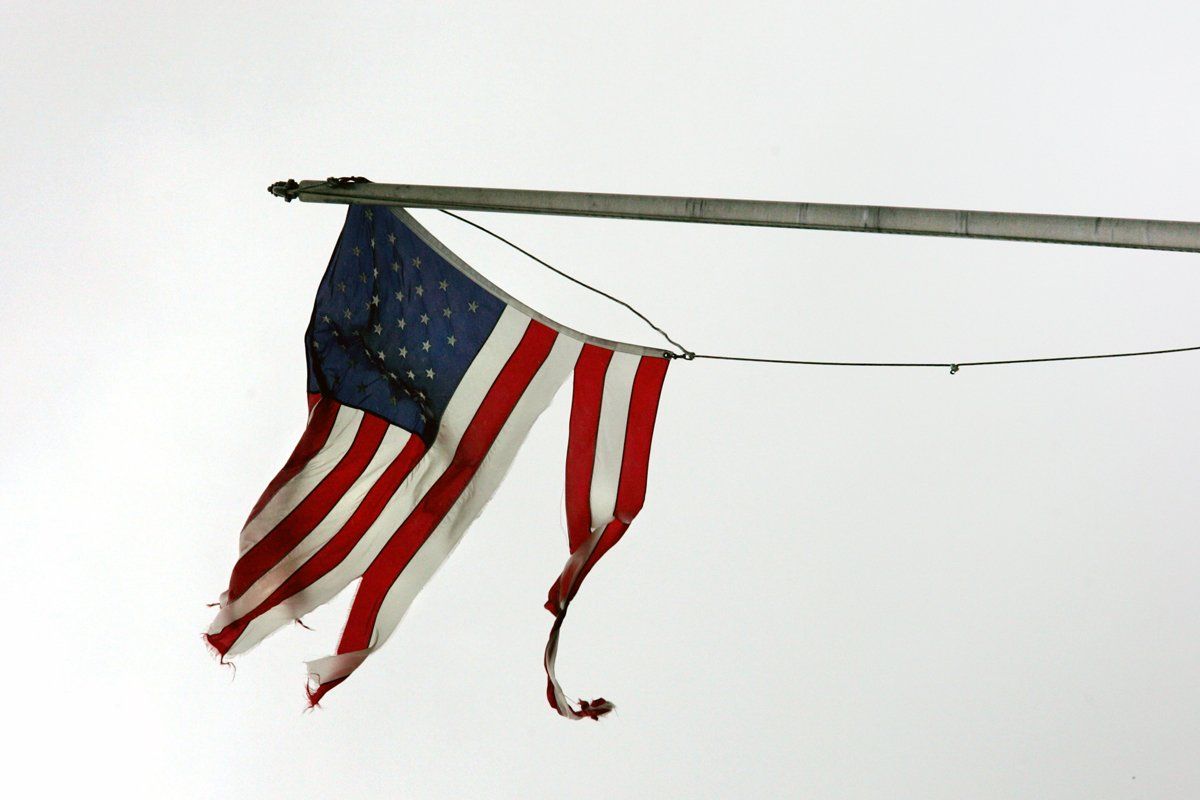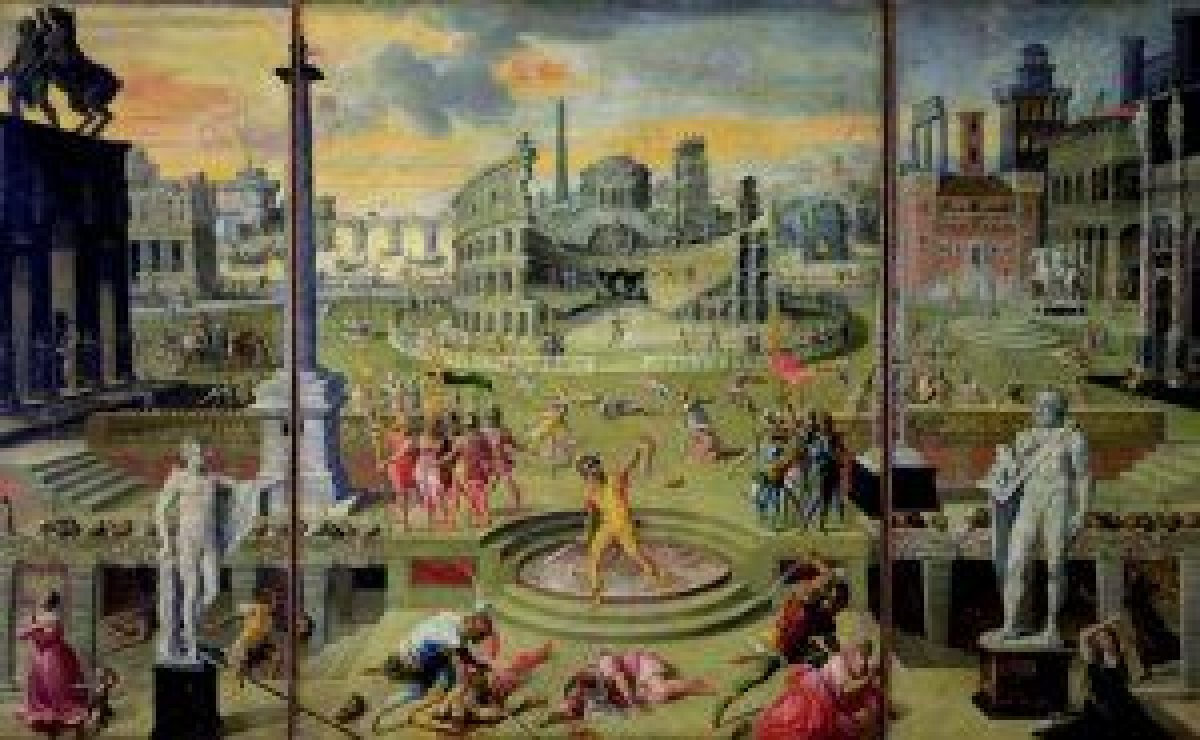
On a trip to Berlin in the spring of 2009, I visited the German Historical Museum, intending to stay an hour or so. I spent much of the next two days there. The museum is laid out chronologically, from the time of the Romans through the Cold War. As I wandered through rooms of gorgeous art and fascinating artifacts, I felt like a passenger on a doomed voyage. Germany has been, throughout its long history, a magnificent vessel that repeatedly capsizes. The museum presents great intellectual and cultural achievements—undone or sullied by terrible social convulsions, one after another. It's as if Germany were a ship with tall masts and great sails but no keel to keep it upright in a storm.
It has always been my belief that similar upheavals could not happen in the United States. At least since the Civil War, America has been blessed with self-correcting mechanisms that preserve a basic social and political stability. The first of these is the U.S. Constitution (once the sin of slavery was expunged), with its checks and balances. The second is social mobility. I never believed the warnings of Paul Kennedy, the Yale scholar who made people nervous in the late 1980s with his prediction that America would succumb to the fate of ancient Rome, or the hegemonies of 19th-century Britain and 16th-century Spain. Those empires allowed their upper classes to loot the treasury while they clung to power. Our upper class keeps changing, thanks in part to the refreshments of constant immigration.

True, America has a paranoid streak in its politics, and demagogues come along from time to time to feed on anger and resentment. But I have always subscribed to the 51 percent rule. The Huey Longs and Joe McCarthys can rant and rave, but they can never get to a simple majority in a national election. Their lies will ultimately be exposed by a free press, and the common sense of the American people will prevail. The political pendulum swings in the United States, sometimes wildly. But it always swings back.
Lately, though, I'm beginning to wonder. It's not that I see an immediate danger. I think the Tea Partiers, despite their contradictions, are not all wrong about Big Government. But I worry that, in time, a clever fearmonger could manipulate popular opinion into an electoral mandate. I no longer take for granted America's gyroscope. Politics is becoming so polarized that neither side credits, or even hears, the other. The gap between rich and poor is growing in ways that mock American middle-class egalitarianism. In 1970 the richest 1 percent made 9 percent of the nation's income; now that top slice makes closer to 25 percent. CEOs who once made 50 times the average worker's salary made more than 500 times as much in 2001.
America's social harmony has depended at least to some degree on economic growth. It is easier to get along when everyone, more or less, is getting ahead. But when the pie is shrinking, social groups are more likely to turn on each other. America has always been a remarkably classless society—obsessed by status and money, perhaps, but fluid enough so there was never an identifiable social class that was able to keep the rest out. But as the perception grows that the rich are intent on getting richer and the rest be damned, the folks outside the gated community are growing restless.
In an atmosphere of fear and envy, rumors and conspiracy theories spread fast. It's easy for regular people to suspect the game is rigged against them by the insiders in New York and Washington—the Wall Streeters and the political and media elites. Cable-TV and talk-radio personalities and bloggers have risen up to speak for the people. But as they pander for clicks and ratings, their standards of factual accuracy are often low. This is not by any means just a right-wing phenomenon. As my friend Charles Krauthammer points out, it was an article of faith on the left that George W. Bush deliberately lied about WMD to get us into the Iraq War. Never mind a complete absence of evidence. On Twitter and Tumblr, on Fox and MSNBC, human error is quickly seen as a sinister plot.
The irony is that the Internet and limitless TV channels once seemed to promise more truth. More information, from more sources, should have liberated the marketplace of ideas. Open, free, unfettered speech has usually served to expose the abuses of power. I assumed the same would be true when every citizen could become a journalist, and power could not be rendered unaccountable by secrecy.
But it doesn't seem to be working out that way. There is more noise and more opinion—but arguably not in the cause of truth. Untruths and gross distortions swirl around the Internet, supercharged by the cable-TV bias for hyperconflict. It's demonstrably untrue that President Obama is a Muslim or a foreigner, yet a small but somehow growing percentage of the country chooses to believe such a falsehood. With too much unmediated information to choose from, people select what they wish to believe. These days a wild rumor in an e-mail from your distant cousin can trump The New York Times.
Little lies can add up to one Big Lie. Obama is a socialist! Health reform means death panels! They're going to take away your guns! I don't mean to be apocalyptic. I don't think that Big Brother beckons. But the old and weary (and increasingly cowed) mainstream media, of which I have been a charter member for more than 30 years, may not be as successful as it used to be at exposing the sort of distortions that can fuel mindless rage. Whether those distortions come from the far right or far left, the consequences could be disastrous: a protectionist who sets out to shield workers from foreign competition and wrecks the free-trade regimen that has made America prosper; a law-and-order vigilante who comes to office after a terrorist attack with a program to suspend cherished individual liberties to keep America "safe"; a soak-the-rich populist who kills economic growth in the name of helping the little guy.
American voters, even ones who generally don't pay much attention to politics, usually have a reassuring sixth sense about presidential candidates. They can smell out phonies and crooks, the power-mad and the truly venal. But they need some factual basis for their opinions, and the "facts" they read on the Internet or see on TV or hear on talk radio are increasingly unreliable. It is true that the establishment press in the "good old days" shared a liberal bias, and that some of the right-wing talkers meet a need for conservative opinions to be heard. But as the late Daniel Patrick Moynihan said, "Everyone is entitled to his own opinion, but not to his own facts."
Uncommon Knowledge
Newsweek is committed to challenging conventional wisdom and finding connections in the search for common ground.
Newsweek is committed to challenging conventional wisdom and finding connections in the search for common ground.
About the writer
To read how Newsweek uses AI as a newsroom tool, Click here.








